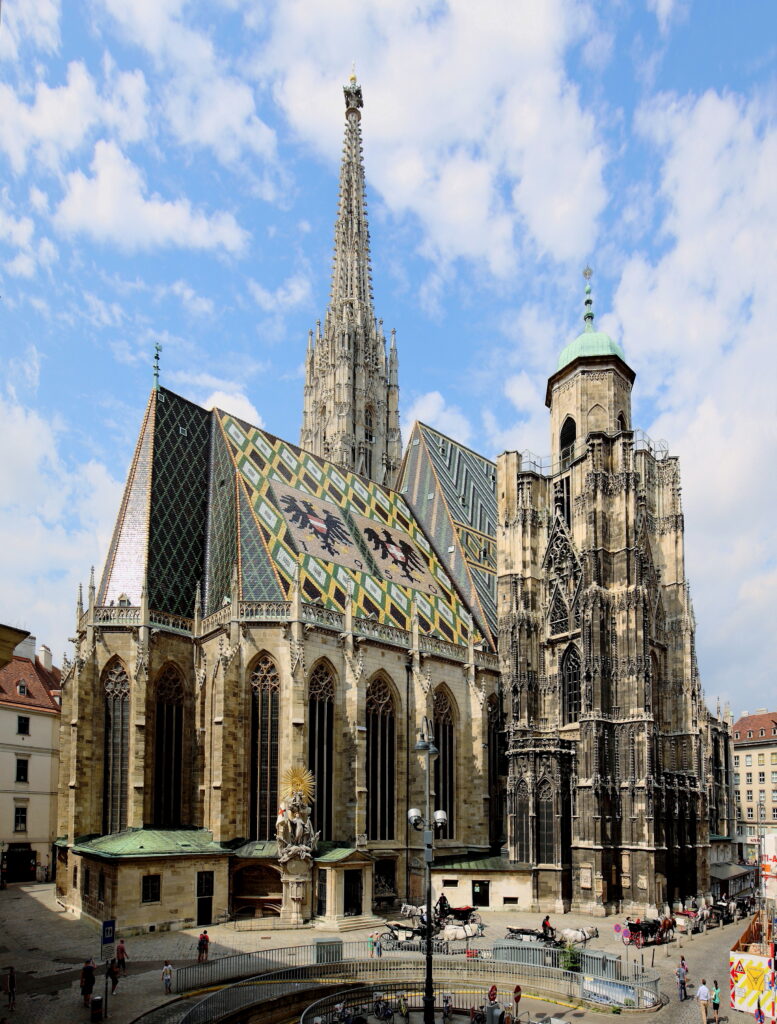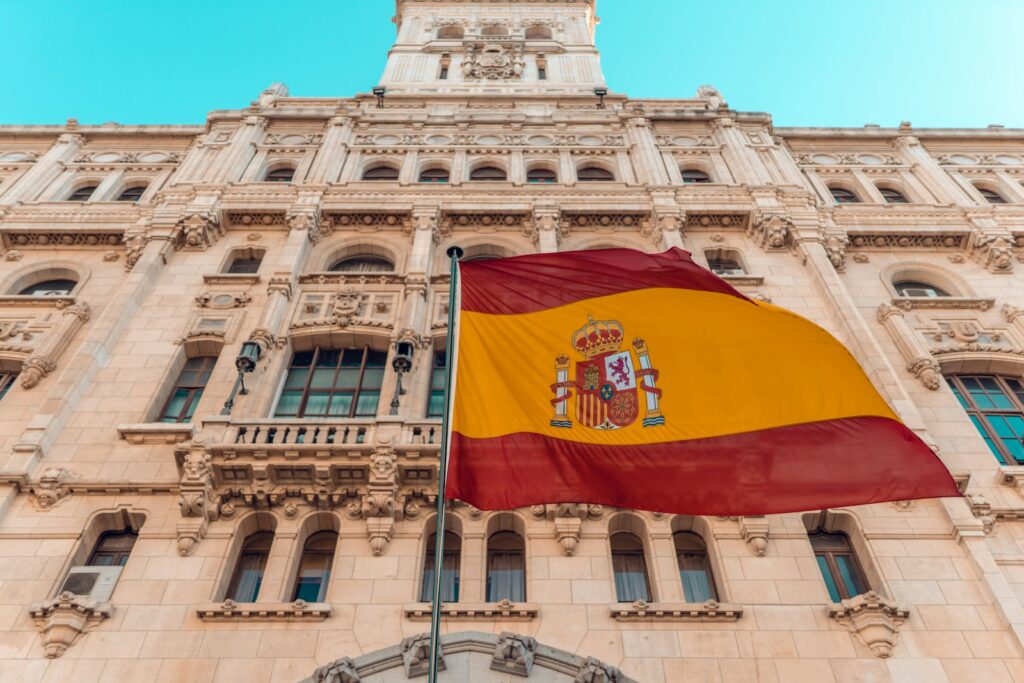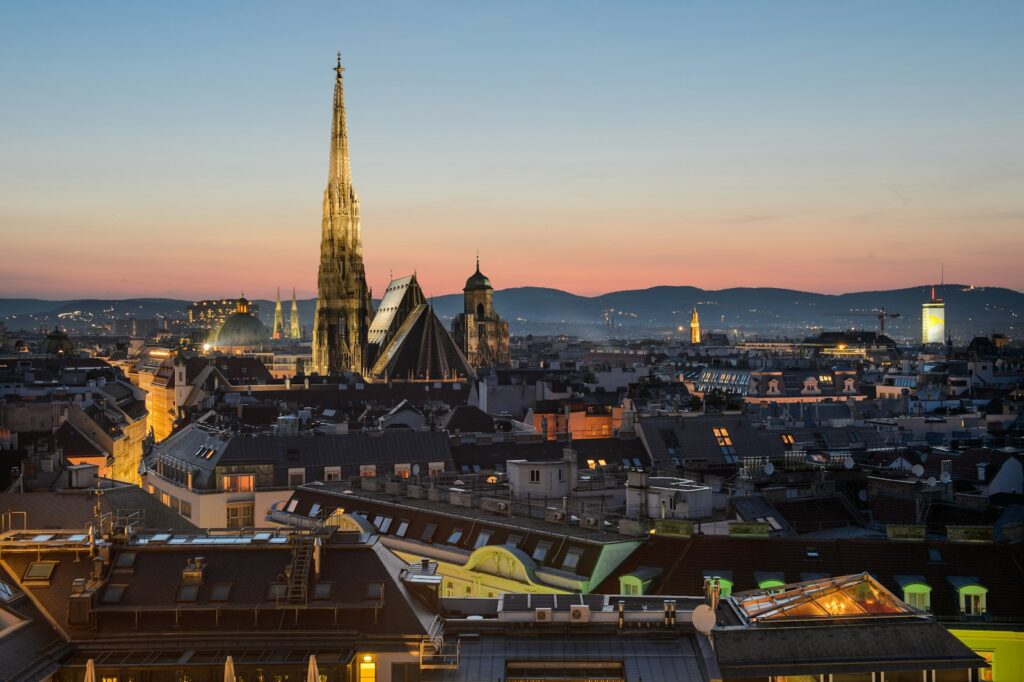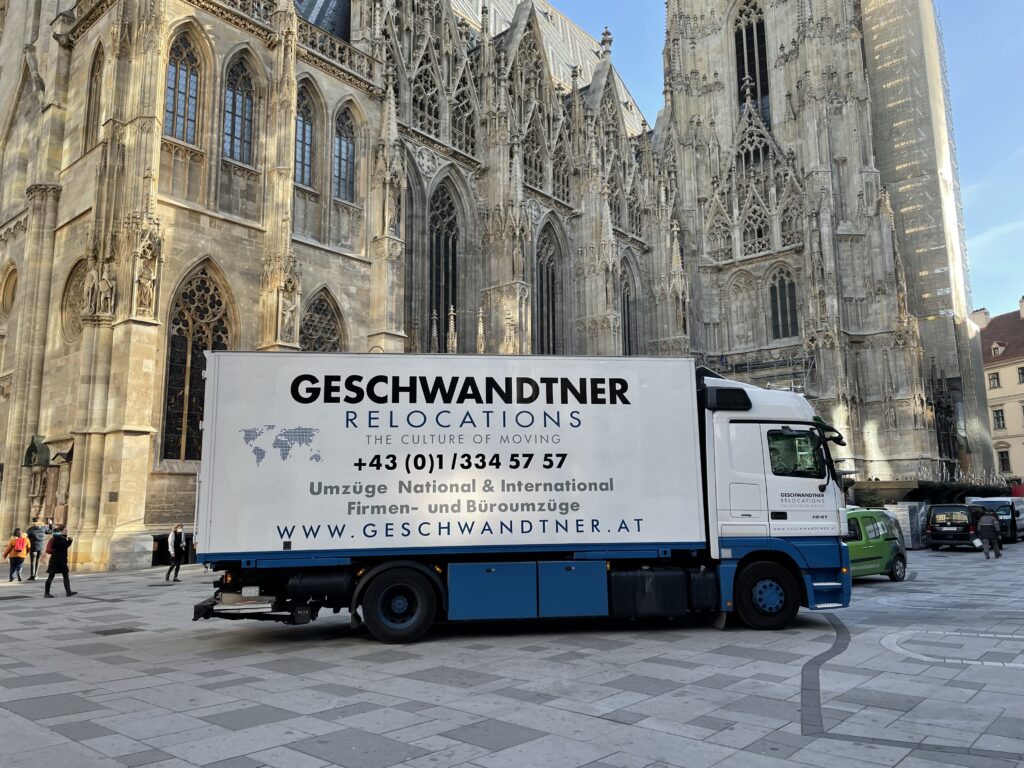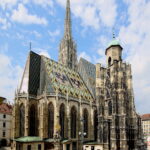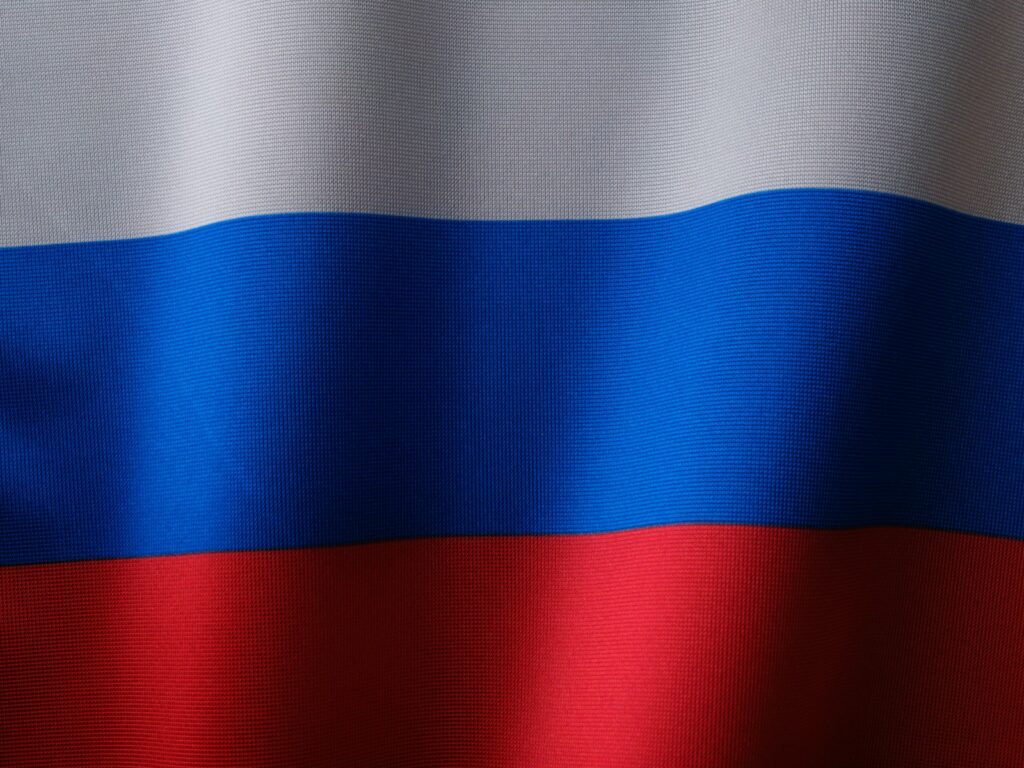
Moving Austria – Russia: A New Chapter in Life Begins
A move from Austria to Russia, or vice versa, is not an ordinary change of residence – it’s a step into a completely new world. Even small organizational mistakes can have major consequences: strict customs regulations, extensive visa requirements, and cultural differences make thorough preparation essential.
For over 30 years, Geschwandtner GmbH has assisted countless individuals, families, and expats with relocations between Austria and Russia – both ways. This experience makes us one of the few Austrian moving companies with deep expertise in the procedures of both countries.
Why Moving Between Austria and Russia Is Particularly Challenging
Customs Clearance: Strict import regulations for furniture, electronics, vehicles, and valuables.
Visa & Residency: Unlike in the EU, a valid visa is mandatory.
Language Barriers: Contracts, official procedures, and forms are usually only in Russian.
Logistics: The long distance requires perfect planning and suitable transport methods (truck, rail, sea, or air freight).
Cultural Adaptation: Business practices, language, and everyday rules differ significantly from Austria.
A move to Russia or back to Austria is therefore always a project that requires professional support. With our TÜV ISO 9001 certification and memberships in IAM, FEDEMAC, and ÖMTV, we provide not only secure transportation but also the necessary experience in dealing with authorities, customs, and logistics.
Moving Austria – Russia: Costs & Price Factors
An international move to Russia or back to Austria differs significantly in cost from a relocation within the EU. Expenses depend not only on the distance but also on customs, visas, transport routes, and the level of service required.
Key Cost Factors
Moving Volume: Number of boxes, furniture items, and total cubic meters.
- Typical price range: Usually between €50 and €250 per m³.
Transport Method:
- Truck transport is suitable for shorter distances (e.g., Moscow – Vienna).
- For longer distances, rail, sea, or air freight is required.
Customs Fees: Depend on the value, weight, and type of goods being imported.
Scope of Services:
- Transport only (self-service)
- Full-service, including packing, assembly, customs clearance, and storage
- Additional services: furniture lifts, handyman services, special transport (e.g., pianos, artwork)
Site Complexity: Narrow staircases, missing elevators, or restricted access increase effort and costs.
Example: Price Differences by Service
- Basic Move (transport only): lower cost but higher personal effort
- Full-Service Move: all-inclusive package with packing/unpacking, furniture assembly, and customs formalities
Our Promise
Geschwandtner GmbH provides a customized flat-rate quote for every Russia move. We guarantee:
Fixed prices with no hidden costs
Clear breakdown of all services
Transparency regarding customs fees and official charges
Thanks to our extensive experience with moves between Austria and Russia, we know exactly how to avoid cost traps while ensuring maximum security.
Customs & Import Regulations for Moving to Russia or Austria
A move to Russia comes with particularly complex customs procedures compared to EU countries. While moving within Europe is usually straightforward, Russia requires careful preparation and extensive documentation.
Basic Customs Rules for Russia
Customs Duties: Typically 30% of the goods’ value, but at least €4 per kilogram.
Duty-Free Allowance: Personal household goods valued up to €5,000 can be imported duty-free if the owner has been registered abroad for at least 12 months, confirmed by a consulate.
Required Documents: Passport, Russian visa, entry stamp, possibly tax ID (INN), and a legalized power of attorney. A bilingual inventory list is often required.
Presence Requirement: In some cases, the owner must be personally present for customs clearance.
Special Regulations
Vehicles: Permanent import is expensive (depends on age, engine size, and emission standards). Vehicles must meet EURO-5 standards and be equipped with the GLONASS system. Temporary import for up to one year is possible.
Art & Antiques: Items over 100 years old require a certificate from the Russian Ministry of Culture.
Prohibited Items: Food, alcohol, tobacco, medications, plants, weapons, precious metals, cash, media with political or pornographic content, and lithium batteries for air freight are strictly prohibited.
Returning to Austria
Returning moves are simpler:
- Personal household goods owned for a long time are duty-free.
- Vehicles must comply with Austrian registration regulations.
- Alcohol, tobacco, and antiques are subject to quantity and import limits.
Our Services
Geschwandtner GmbH handles the entire customs process for moves to Russia: from document preparation and coordination with consulates to personal assistance during customs clearance. This ensures our clients avoid delays, extra costs, or the risk that their goods may not be allowed for import.
Visa & Residency Requirements
Moving to Russia or from Russia to Austria is not possible without the proper residency documents. Unlike within the EU, strict visa requirements and registration rules apply.
Entry to Russia
Visa Requirement: Austrian citizens must obtain a visa, even for short stays.
Types of Visas for Relocation and Long-Term Stay:
- Work Visa: Required if you plan to work in Russia (usually tied to a job offer).
- Student Visa: For school or university students attending a Russian educational institution.
- Private Visa: For longer stays with family members or partners.
Residency Permit (ВНЖ – “Vid na zhitelstvo”): Long-term residency permit that can be combined with a work permit.
Registration Requirement: Every person must register with the local authorities within 7 working days of arrival.
Returning to Austria (for Russian Citizens)
Visa-Free Entry: Russian citizens still require a visa to enter Austria, unless they hold a valid residence permit (e.g., permanent settlement permit).
Registration Requirement: Must register at the local registration office within 3 days of taking up residence.
Residence Permits: Depending on the purpose (work, study, family reunification), the appropriate residence title is required.
Tips for Smooth Entry
- Keep all documents (passport, visas, invitations, proof of insurance) both originals and copies.
- Apply for visas well in advance (processing can take several weeks).
- For work or study stays, coordinate with the respective institutions, as they often must act as visa sponsors.
Our Services
Geschwandtner GmbH supports clients not only with transportation but also with preparing the necessary visa and residency formalities. We provide guidance on required documents and connect clients with partners who can assist in the visa process.
Work Permits & Job Search for Expats – Moving and storage
A key aspect of moving to Russia is professional opportunities. Anyone planning to work in Russia must have a work permit and the appropriate visa. Without these documents, legal employment is not possible.
Work Permit in Russia
- Employer-Sponsored: Usually, the employer handles the work permit application.
- Visa Type: Employees require a work visa, which is tied to the employment contract.
- Highly Skilled Specialists: For high-income professionals (currently around 167,000 RUB/month, approx. €1,700), there are simplified procedures and longer residency permits.
- Registration: Employees must register with local authorities within 7 working days after arrival.
Job Search for Expats in Russia
- Key Industries: Energy & resources, construction, IT, mechanical engineering, international corporations in Moscow and St. Petersburg.
- Language: Russian skills are a major advantage. English is often sufficient in international companies, but official dealings are mostly in Russian.
- Networks: Many expats use platforms like LinkedIn, as well as local Russian job portals (hh.ru, Superjob).
- Work Culture: More hierarchical and formal than in Austria. Punctuality and respect toward supervisors are highly valued.
Working in Austria for Russian Citizens
- Visa & Residence Permit: Required for any employment, e.g., the Red-White-Red Card for skilled professionals.
- Job Market: High demand for IT specialists, nurses, engineers, and craftsmen.
- Language Skills: German is mandatory for most positions; internationally oriented companies are the exception.
Our Services
Geschwandtner GmbH knows from experience that expats benefit greatly from a smoothly organized move. While we take care of transport, customs, and logistics, our clients can fully focus on their new professional start.
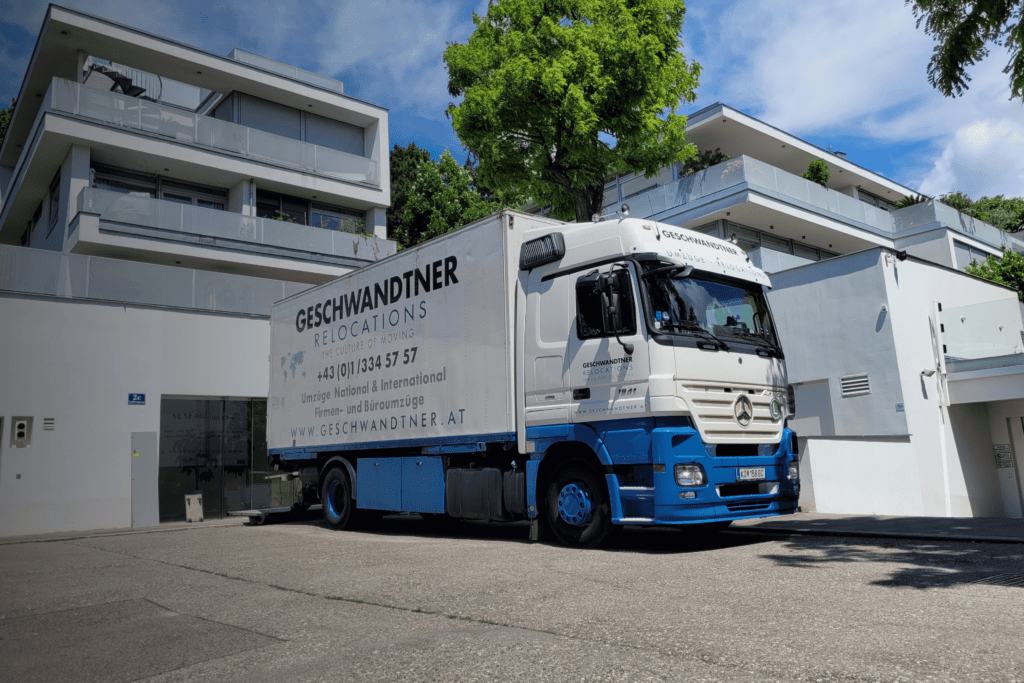
Apartment Hunting in Russia – Differences Compared to Austria
Finding an apartment is one of the biggest challenges when moving to Russia. While Austria offers a clearly structured rental system with legal standards, the Russian housing market is less regulated in many areas and relies heavily on personal contacts.
Apartment Hunting in Russia
- Moscow & St. Petersburg: Comparable to Vienna, sometimes even more expensive. Rent for central apartments ranges from €20–40 per m².
- Deposits & Advance Payments: Landlords often require multiple months’ rent in advance (deposit + first month + agency fee).
- Documents: Passport and residence permit are mandatory. Without a valid visa or registration, rental contracts are rarely approved.
- Real Estate Agents: Almost indispensable in Russia, as many listings are only available through agencies. Fees are typically 50–100% of one month’s rent.
- Apartment Quality: Can vary greatly, from modern apartments to older buildings in need of renovation.
Apartment Hunting in Austria
- Regulation: Strong tenant protections with clear rules on deposits (max. 3 months’ rent).
- Rental Prices: Vienna €12–20 per m²; smaller cities like Graz or Linz are cheaper.
- Platforms: Willhaben.at, Immowelt.at, Immoscout24.at
- Agent Fees: Largely abolished since 2023 – a significant advantage for tenants.
Tips for Expats in Russia
- Always sign written and bilingual contracts (Russian + English/German).
- Check which utilities and additional costs are included – heating can be very expensive.
- Consider pre-move viewings or using relocation agencies for support.
- Registration requirement: The landlord must officially register the tenant with local authorities.
Cost of Living: Russia vs. Austria
A key factor when moving is the comparison of living costs. There are significant differences between Austria and Russia, which vary greatly depending on the region. While life in Moscow or St. Petersburg can be almost as expensive as in Vienna, smaller cities and rural areas in Russia are considerably cheaper.
Housing
Russia:
- Moscow: €20–40 per m² in central areas, often with high additional costs.
- Provincial cities: sometimes only €5–10 per m².
Austria:
- Vienna: €12–20 per m², very high demand.
- Graz, Linz, smaller cities: €8–14 per m².
Food & Dining
Russia: Basic groceries (bread, vegetables, meat) are cheaper than in Austria. Imported goods such as cheese, wine, or electronics are significantly more expensive.
Austria: Prices are stable, organic products widely available, and restaurant visits generally more expensive than in Russian cities.
Transportation
Russia: Public transport is very cheap (Moscow Metro: ~€0.80 per ride). Taxi apps like Yandex or Uber are also affordable.
Austria: Public transport is more expensive (Vienna annual pass: €365) but very well-developed. Fuel prices are usually cheaper than in Russia.
Healthcare & Education
Russia: Public healthcare is free but limited. Private clinics offer high quality but are expensive.
Austria: Comprehensive health insurance covers most services. Education in public schools and universities is largely free.
Average Monthly Costs per Person
- Moscow: €1,200–2,000
- St. Petersburg: €1,000–1,600
- Provincial Russian cities: €600–1,000
- Vienna: €1,400–2,000
- Graz/Linz: €1,100–1,600
For many expats, Russia is more affordable as long as they don’t live in Moscow and are not reliant on imported goods.
Pension & Social Security When Moving to Russia or Returning to Austria
An international move affects not only your place of residence but also retirement and social security coverage. Unlike within the EU, there is no direct harmonization between Austria and Russia, so pension and social insurance issues should be clarified early.
Pension When Moving to Russia
- Austrian Pension: Anyone who has accumulated insurance years in Austria retains their entitlements. Pension payments can also be made abroad.
- Payment: The pension can be transferred to Russia, but bank fees and currency exchange losses may apply.
- Double Taxation: Austria and Russia have a double taxation agreement, preventing double taxation. Pensioners must still report income correctly in both countries.
- Russian Pension System: Based on mandatory employee contributions. Foreigners can acquire pension rights if they officially work and pay contributions in Russia.
Social Security in Russia
- Employees automatically contribute to the Russian social security system.
- Benefits include pension, health insurance, and unemployment insurance.
- The quality and level of benefits are significantly lower than in Austria, so many expats take out private supplementary insurance.
Returning to Austria
- Anyone who has worked in Russia for a longer period should bring proof of employment and insurance periods.
- These periods may not always be credited in Austria, as Russia is not an EU or EEA country.
- Tip: Before returning, clarify with the Austrian Pension Insurance Institution (PVA) how Russian insurance periods affect your Austrian pension.
Important for Expats & Pensioners
- Clarify early whether your pension will be paid in euros or rubles.
- Check bank arrangements to avoid unnecessary fees.
- Private pensions or supplementary insurance may be useful to cover potential gaps in coverage.
Healthcare Systems Compared: Health Insurance in Russia and Austria
Anyone moving from Austria to Russia or vice versa should familiarize themselves early with the differences in healthcare systems. Both countries have a public basic system, but the quality and availability of services differ significantly.
Russia
- Public Healthcare: Every person officially registered in Russia has access to the mandatory health insurance system (OMS – Обязательное Медицинское Страхование).
- Services: Doctor visits and hospital stays in public facilities are free, but quality varies greatly by region.
- Private Clinics: Many expats prefer private facilities due to shorter waiting times and better equipment. Costs can be very high without supplementary insurance.
- Requirement for Foreigners: Expats often need private health insurance to obtain a work or long-term visa.
Austria
- Mandatory Insurance: Every employee is automatically covered by the Austrian Health Insurance Fund (ÖGK) or another health insurance provider.
- Services: Comprehensive coverage for doctor visits, hospital stays, and medications.
- Supplementary Insurance: Optional, e.g., for private doctors or special services.
- Quality: Austria is ranked by the WHO as one of the countries with the best healthcare systems worldwide.
Key Differences at a Glance
- Costs: Private treatments in Russia can be cheaper than in Austria but usually require out-of-pocket payments.
- Service Security: Austria guarantees high-quality care nationwide, while in Russia, service quality is highly region-dependent.
- Expats in Russia: It is strongly recommended to have an international health insurance that also covers private clinics.
Moving with Family & Children
An international move with the family is always a special challenge—and moving to a destination like Russia adds additional organizational and cultural aspects. To help children settle in quickly and give parents peace of mind, good preparation is essential.
Childcare and Schools in Russia
- Kindergartens (Detzki Sad): Places are limited, especially in major cities like Moscow. Early registration is recommended.
- Compulsory Education: Starts at age 7. The Russian school system places a strong emphasis on discipline and performance.
- International Schools: Moscow and St. Petersburg offer numerous English-speaking and international schools, popular with expats. Tuition is expensive, ranging from €10,000 to €25,000 per year.
- Language: Classes are taught in Russian. Children adapt quickly, but preparatory language courses are helpful.
Family Benefits
- Russia provides financial support for families with children, but it is significantly lower than in Austria.
- In Austria, families enjoy extensive support, including:
- Family allowances
- Child benefits
- Parental leave programs
Practical Tips for Family Moves
- Involve children early in the moving process and foster a positive mindset for the new start.
- If possible, visit the new school or kindergarten in advance.
- Utilize playgroups or expat communities to build social connections.
- Maintain familiar routines (mealtimes, bedtimes) to provide security and stability.
Moving to Russia – What You Need to Know
Moving to Russia is significantly more complex than relocating within the EU. Early planning and keeping track of the most important points saves time, money, and stress.
Key Preparations
- Visa & Residency: Entry and residence are not possible without a valid visa. The type of visa depends on the purpose (work, study, family reunification).
- Customs Formalities: Household goods, furniture, and personal items must be listed in a detailed inventory. Duties may apply, usually around 30% of the item value or €4 per kg.
- Finding Accommodation: Especially challenging in Moscow and St. Petersburg, where real estate agents are common and high deposits are often required.
- Registration: Every foreigner must register with local authorities within 7 working days after arrival.
- Language Skills: Basic Russian knowledge is essential, as many official procedures are conducted only in Russian.
Practical Tips
- Prepare Documents: Keep your passport, employment contract, consular certificates, and insurance documents in originals and copies.
- Organize Finances: Check whether a local bank account is needed. International transfers to Russia may incur high fees.
- Health & Insurance: Private health insurance is mandatory for expats. Ensure it is recognized in Russia.
- Plan Everyday Life: Imported goods (e.g., Western food, electronics) are more expensive in Russia—consider bringing some essentials from Austria.
- Use Networks: Expat communities in Moscow or St. Petersburg help newcomers settle and provide valuable contacts.
For decades, Geschwandtner GmbH has supported clients moving to Russia and back to Austria. We know exactly which formalities are critical and what to pay attention to—from customs and logistics to practical everyday tips for a smooth transition.
Checklist – Step-by-Step Plan for Moving from Austria to Russia
Moving to Russia or returning to Austria requires careful planning. This checklist helps you stay organized and ensures nothing is forgotten.
3–6 Months Before the Move
- Check passport validity (at least 6 months beyond the planned stay).
- Apply for the appropriate visa (work, study, or family).
- Obtain an initial cost estimate for the move.
- Hire a moving company, such as Geschwandtner GmbH.
- Start searching for accommodation in the destination country (in Russia, best via real estate agents or expat communities).
1–2 Months Before the Move
- Terminate contracts in Austria (electricity, internet, insurance).
- Collect and translate documents (e.g., birth certificates, marriage certificates, school diplomas).
- Check customs and veterinary regulations if bringing pets.
- Open a bank account or check if an international account is needed.
- Schedule vaccinations and health checks for family and pets.
2–3 Weeks Before the Move
- Pack boxes yourself or have the moving company pack them.
- Create a customs inventory list (bilingual recommended: German/Russian).
- Confirm pickup and transport dates.
- Update your address with authorities, banks, insurance providers, and employers.
- Prepare cash reserves in euros and rubles.
On Moving Day
- Be present for loading and handover.
- Transport personal valuables separately.
- Record meter readings in the old apartment.
- For moves to Russia: be prepared for personal presence at customs clearance, if required.
After the Move
- Register with local authorities:
- Russia: within 7 working days.
- Austria: within 3 days of moving in.
- Set up bank and insurance contracts in the new country.
- Enroll children in kindergarten or school.
- Complete initial administrative tasks (e.g., health insurance, tax office).
Advantages of a Professional Moving Company for Moves to Russia
Moving between Austria and Russia is one of the most complex international relocations. In addition to the long distance, strict customs regulations, visa requirements, and language barriers make self-organization challenging. This is where an experienced moving company proves its value.
Key Advantages
- Customs Handling: Experts manage the creation of the customs inventory list, communication with authorities, and organization of required permits.
- Legal Security: All documents (visas, certificates, translations) are properly prepared.
- Logistics Expertise: Whether by truck, train, sea, or air freight, professionals select the fastest and safest transport route.
- Safety: Furniture, valuables, and sensitive documents are professionally packed and transported.
- Time Savings: While the moving company handles everything, clients can focus on work, family, and integration.
Why Geschwandtner GmbH Is the Best Choice
- Over 30 years of experience with international relocations, including many between Austria and Russia.
- TÜV ISO 9001 certification, guaranteeing the highest quality standards.
- Member of IAM, FEDEMAC, and ÖMTV, leading international professional associations.
- Fixed prices without hidden costs thanks to transparent calculation.
- Comprehensive service: From packing and assembly to special transports (e.g., pianos, artwork, vehicles).
A move to Russia is hardly stress-free without professional support. Geschwandtner GmbH ensures that all formalities, transports, and special requests are handled reliably, making your fresh start in Russia or Austria smooth and secure.
Conclusion
We attach great importance to quality, trained staff and reliability. With more than 25 years of professional experience, Geschwandtner GmbH, your removal service in Vienna, is one of the most renowned removal companies in Vienna. We impress with our international industry knowledge & professionalism in all situations. Make the right choice for your move to the land of opportunity!
We are happy to help you with any questions, requests or quotations, and we have recently introduced an e-move! Make the right choice for the right partner and one of the best removal companies at your side, true to the motto:
fill in – send off – relax
+43 (0) 1 334 57 57
Creative Move Moving Office Packing Popular Relocate Removal Tips
Relocation for the following districts of Vienna
| Number | District | Postcode |
| 1. | Innere Stadt | 1010 Wien |
| 2. | Leopoldstadt | 1020 Wien |
| 3. | Landstraße | 1030 Wien |
| 4. | Wieden | 1040 Wien |
| 5. | Margareten | 1050 Wien |
| 6. | Mariahilf | 1060 Wien |
| 7. | Neubau | 1070 Wien |
| 8. | Josefstadt | 1080 Wien |
| 9. | Alsergrund | 1090 Wien |
| 10. | Favoriten | 1100 Wien |
| 11. | Simmering | 1110 Wien |
| 12. | Meidling | 1120 Wien |
| 13. | Penzing | 1130 Wien |
| 14. | Hietzing | 1140 Wien |
| 15. | Rudolfsheim-Fünfhaus | 1150 Wien |
| 16. | Ottakring | 1160 Wien |
| 17. | Hernals | 1170 Wien |
| 18. | Währing | 1180 Wien |
| 19. | Döbling | 1190 Wien |
| 20. | Brigittenau | 1200 Wien |
| 21. | Floridsdorf | 1210 Wien |
| 22. | Donaustadt | 1220 Wien |
| 23. | Liesing | 1230 Wien |
Moving to Belgium from Austria (or Back): Complete Guide, Costs, and Checklist (2026)
Moving to Belgium from Austria, or relocating back to Austria, comes with organizational, legal, and…
relocation-service-guide-2026-vienna-move-worldwide
Geschwandtner GmbH is your strategic partner for the complete relocation project. As experts in logistics…
Moving to Spain or Back to Austria: 30 Years of International Relocation Expertise
International Move Austria ↔ Spain: Planning, Expertise & Safety Moving between Austria and Spain requires…
Moving from Austria to Malta or the other way around: Geschwandtner – your moving company with more than 30 years of experience
Moving from Austria to Malta or the Other Way Around: Experience, Planning and Trust A…
Furniture Moving Company Vienna – Absolute Experience, Trust and Quality for Over 30 Years
A move in Vienna is much more than just transporting furniture from A to B….
Moving Vienna | Premium Quality Relocations for Over 30 Years
Moving in Vienna is always a challenge – whether it’s within the city, to another…

